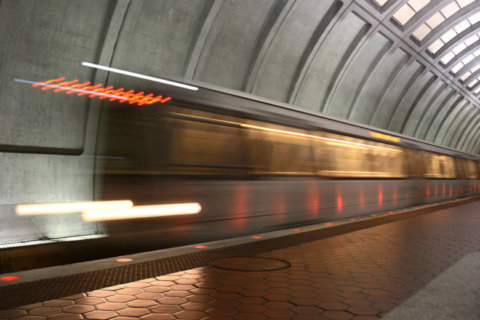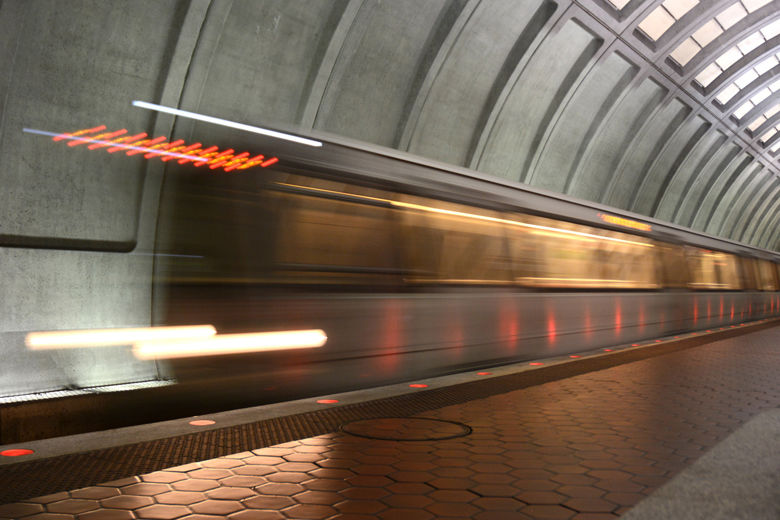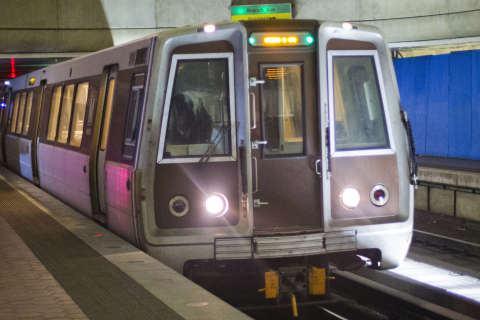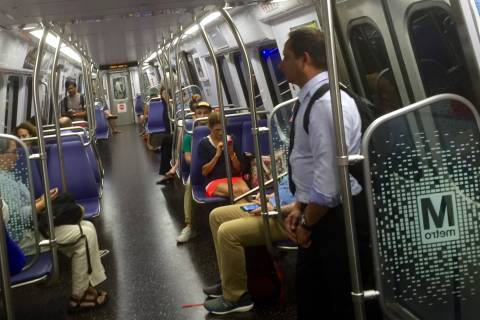
A Metro train operator fell asleep at the controls, leading to a rush-hour train blowing right through a station without stopping last year, a newly-finalized investigation concluded.
The 7000 Series Green Line train toward Branch Avenue kept going through the Waterfront station just before 8 a.m. on June 25.
“The train operator reported dozing off around the time of the event,” said Bruce Walker, the Washington Metrorail Safety Commission program’s specialist. “The work schedule of the employee likely contributed to the risk of the fatigue-related impairment.”
The train operator had an unpredictable schedule that included both day and night shifts in the week leading up to the incident.
“The train operator’s sleep schedule likely contributed to the risk of fatigue,” Walker said. “The train operator reported getting less than four hours of sleep the night leading up to the event.”
Metro is working on a new fatigue management and hours of service policy that would clearly identify positions governed by the safety rules and place limits on hours worked during normal operations.
“We commend WMATA for forming a very measured and deliberate concept,” said Chris Di Fatta, commission manager of oversight and compliance. “This is still in its development stages, and the WMSC is awaiting the next update in March.”
Metro has also advanced other changes directed by the commission that could help deal with fatigue and distraction, including more checks for cellphone distractions and changes to a sun visor on 7000 Series trains that could be used to block the interior camera pointed at train operators.
Metro plans to have replacement visors installed on all the new trains by summer.
Report finds additional problems at Rail Operations Control Center
The independent safety commission is accelerating a review of Metro’s Rail Operations Control Center, the room that essentially operates like air traffic control and governs train movement, work crew access and emergency response.
An audit that had been expected to begin in March is instead well underway after the commission learned of continuing dangerous dysfunction, yelling and mistakes in the control center following a smoke incident near Tenleytown in December.
“The management of the facility abruptly removed a controller from performing duties and substituted a different controller,” WMSC CEO David Mayer said. “We also saw that use of checklists was overruled by managers and instead instructions were provided directly from management to the controllers.”
Up to Carol Glover’s 2015 death outside L’Enfant Plaza, Metro had generally not had checklists on how to handle certain key incidents.
“Now they do have checklists, and there’s not always the habit on management’s part of actually using them,” Mayer said.
The overall audit of Metro’s rail transportation commission requires significant work, but the safety commission is considering releasing findings about the control center before the entire audit is complete due to the potential safety risks.
The commission’s first ever audit, released Thursday, identified significant issues in Metro’s track department that WMSC COO Sharmila Samarasinghe said “still seem to linger.”
Metro has proposed plans to address some previously raised rail control center staffing concerns, but the commission has refused to accept them until the additional reviews are completed.
The commission is monitoring all shifts in the control center on a consistent basis now, with essentially a full-time inspector spending 40 hours a week there, and soon plans additional interviews of Metro staff.
“[Because they do quarterly drills], it strikes me as odd that they wouldn’t be more prepared,” Commissioner John Contestabile said.
The observations have shown the planned drills are handled much differently than real emergencies, though, commission staff said.
Metro should also randomly review several incidents each month to evaluate how controllers and managers handle real emergencies, commission staff suggested.
A review of a separate incident, the Oct. 7 crash of two trains near Farragut West, is also nearly complete, Mayer said.
After that incident, the commission directed Metro to boost efforts to cut distractions for train operators by ensuring they do not have their cellphones on.
The commission found Metro’s initial proposed timeline for implementing the policy improvements to be too slow.
“Metrorail also plans to develop a new method for sharing operational information between the ROCC Fire/EMS desk and the ROCC controllers,” Di Fatta said. “This is to ensure critical information that affect passengers, first responders and roadway workers’ safety is not missed.”
The crash and fire renewed concerns about the delays in contacting first responders, delayed response and response to the wrong locations.
It also led to the revelation that Metro’s rail control center was using the wrong number to reach D.C.’s 911 dispatchers.
Other investigations finalized
A train that pulled apart outside the Wiehle-Reston East station was an isolated incident unrelated to other cases where part of a train moved forward and the rest stayed behind, another investigative report accepted Thursday concluded.
No passengers were on the train last April, because it was out of service, but the 3000 Series cars appear to have had moisture and rust in their couplers.
When the train was turned on, a short circuit led to the train splitting apart.
At the Alexandria rail yard, a major fire that caused extensive damage to a power substation in 2018 was caused by very old electrical equipment, a separate report concludes.
The Aug. 14, 2018 fire happened when a breaker partially tripped, which meant it failed to do its job to contain the incident.
“The electrical equipment was 40 years old and thus near the end of its life expectancy,” Samarasinghe said.
The insulation had worn down over time.
The commission also approved two other investigation reports, one about a train that hit an extra piece of rail sitting beside the tracks at Reagan National Airport in 2018 and another about a near-miss for track workers between Branch Avenue and Suitland due to miscommunications.
For the first incident, Metro needs to improve inspections before trains get the all clear to return to work zones.
Since the second incident, Metro has added additional layers to its worker protection program.








